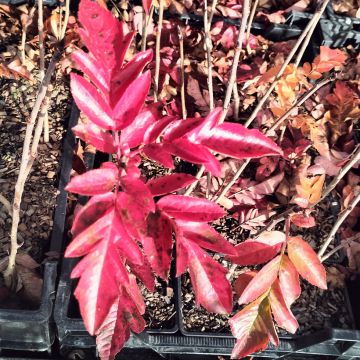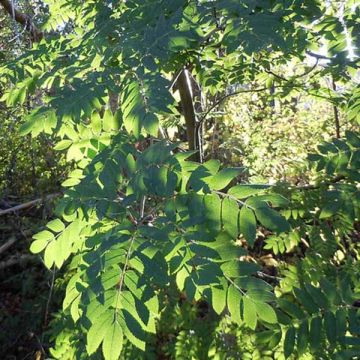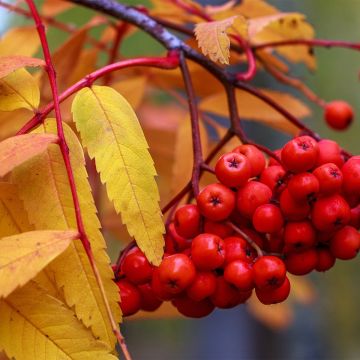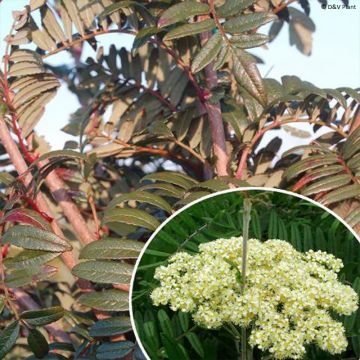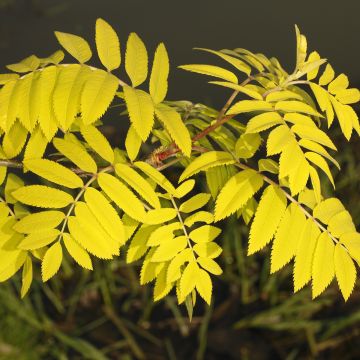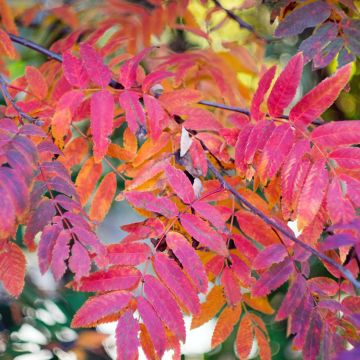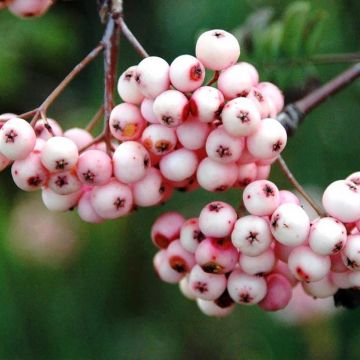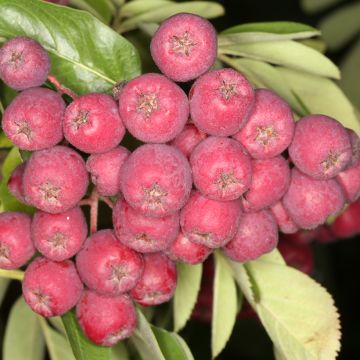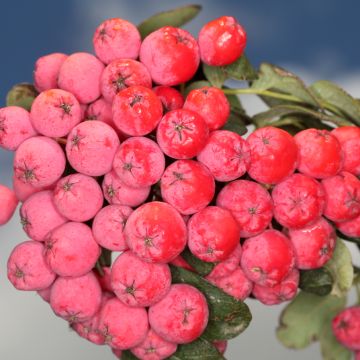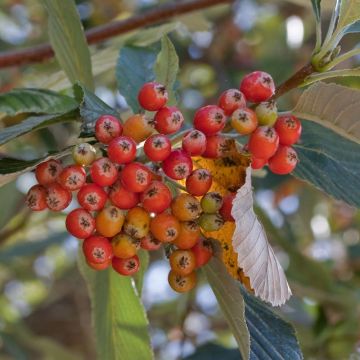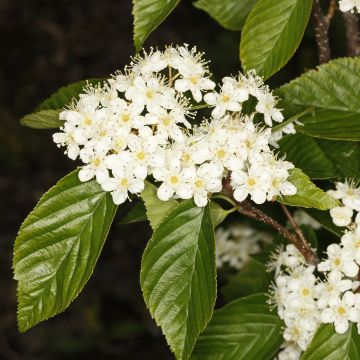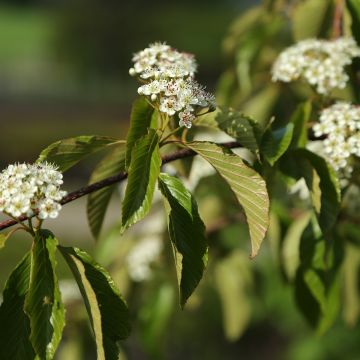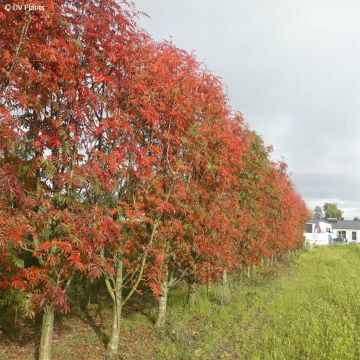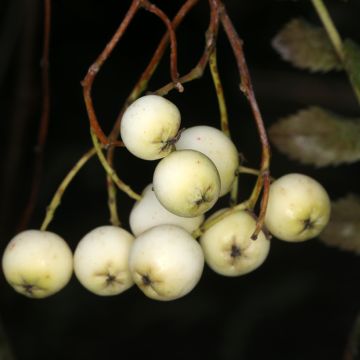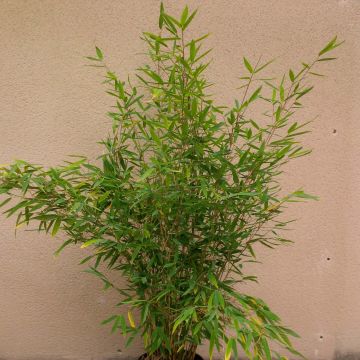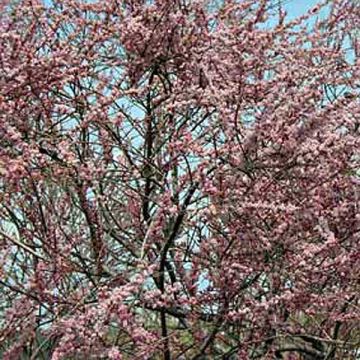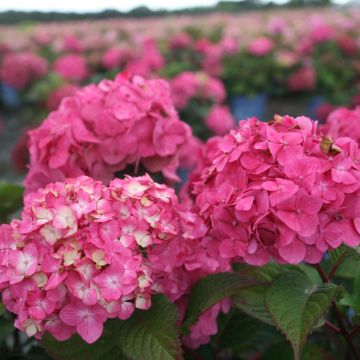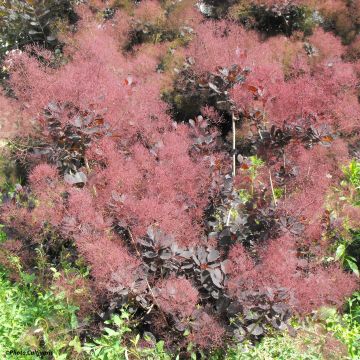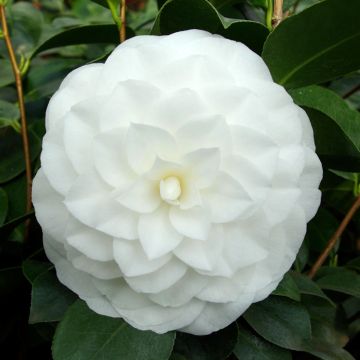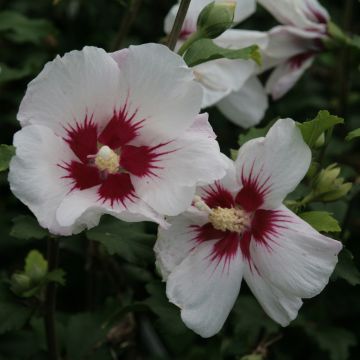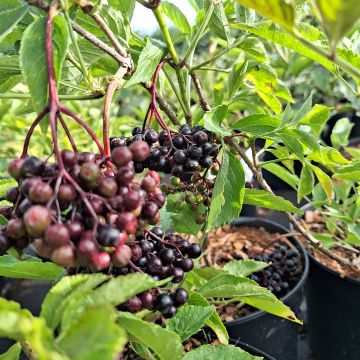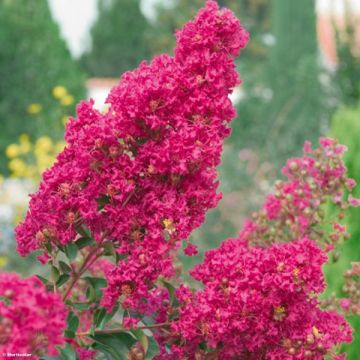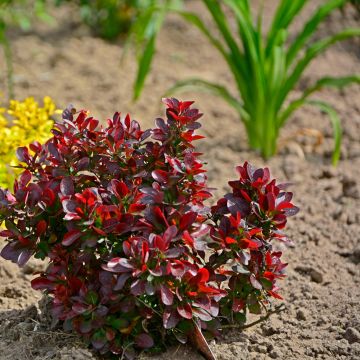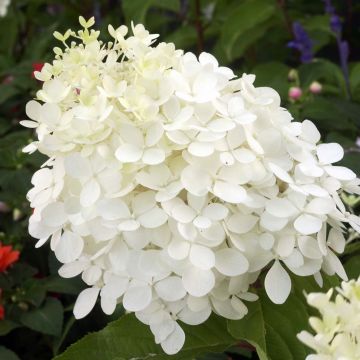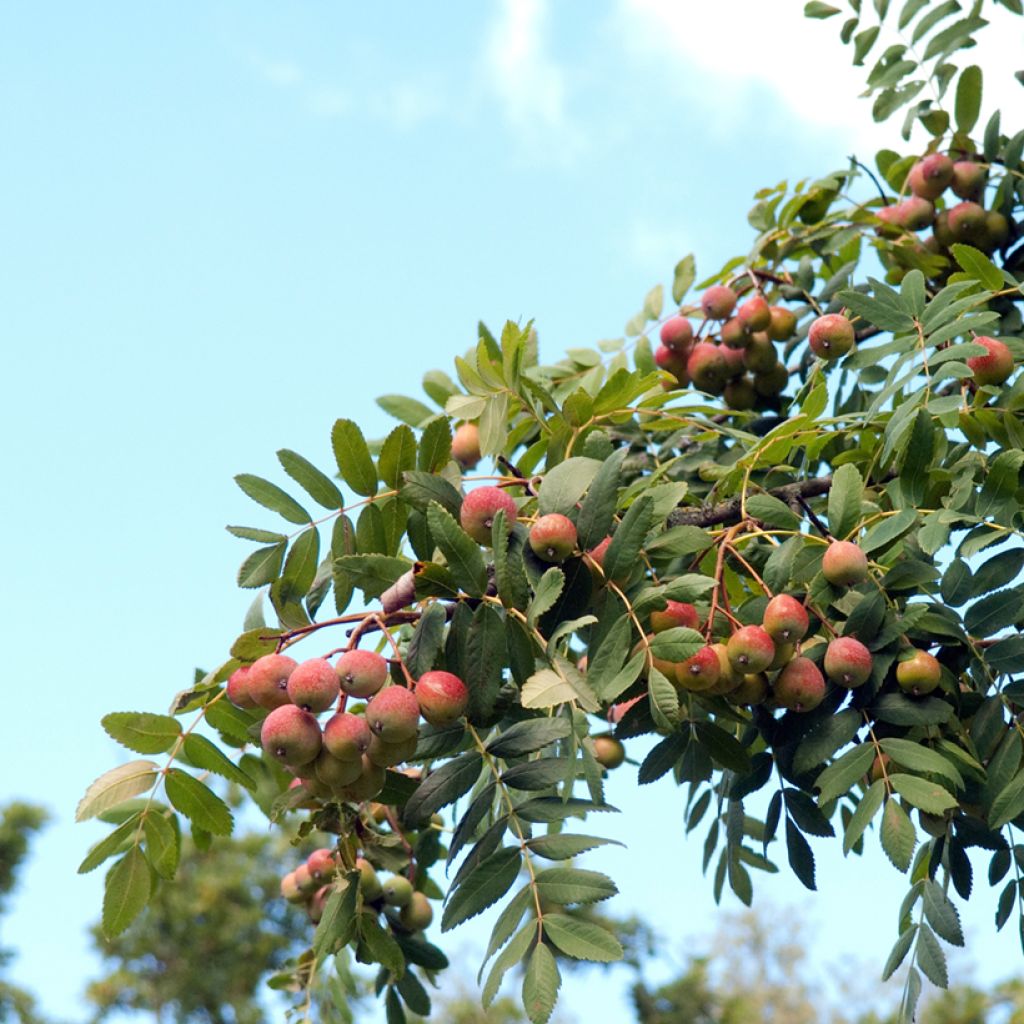

Sorbus domestica - Cormus
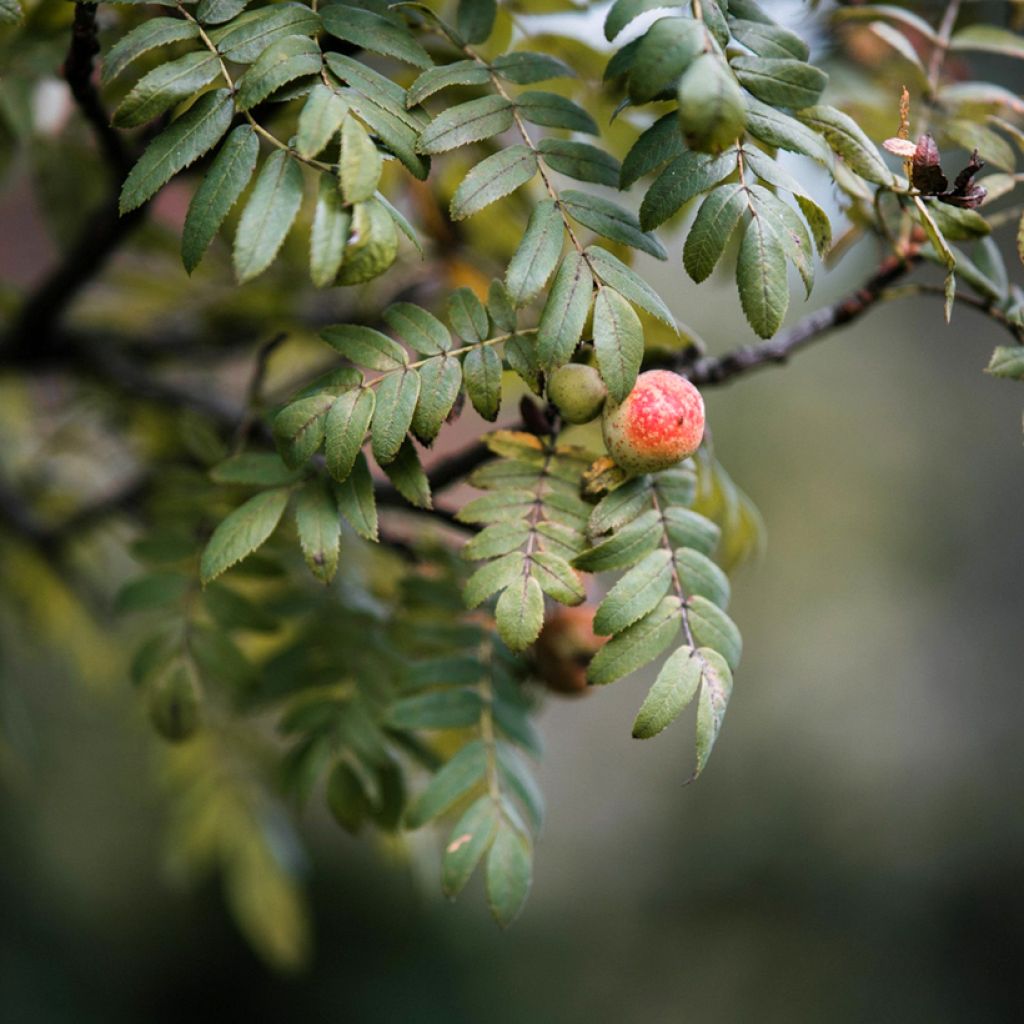

Sorbus domestica - Cormus
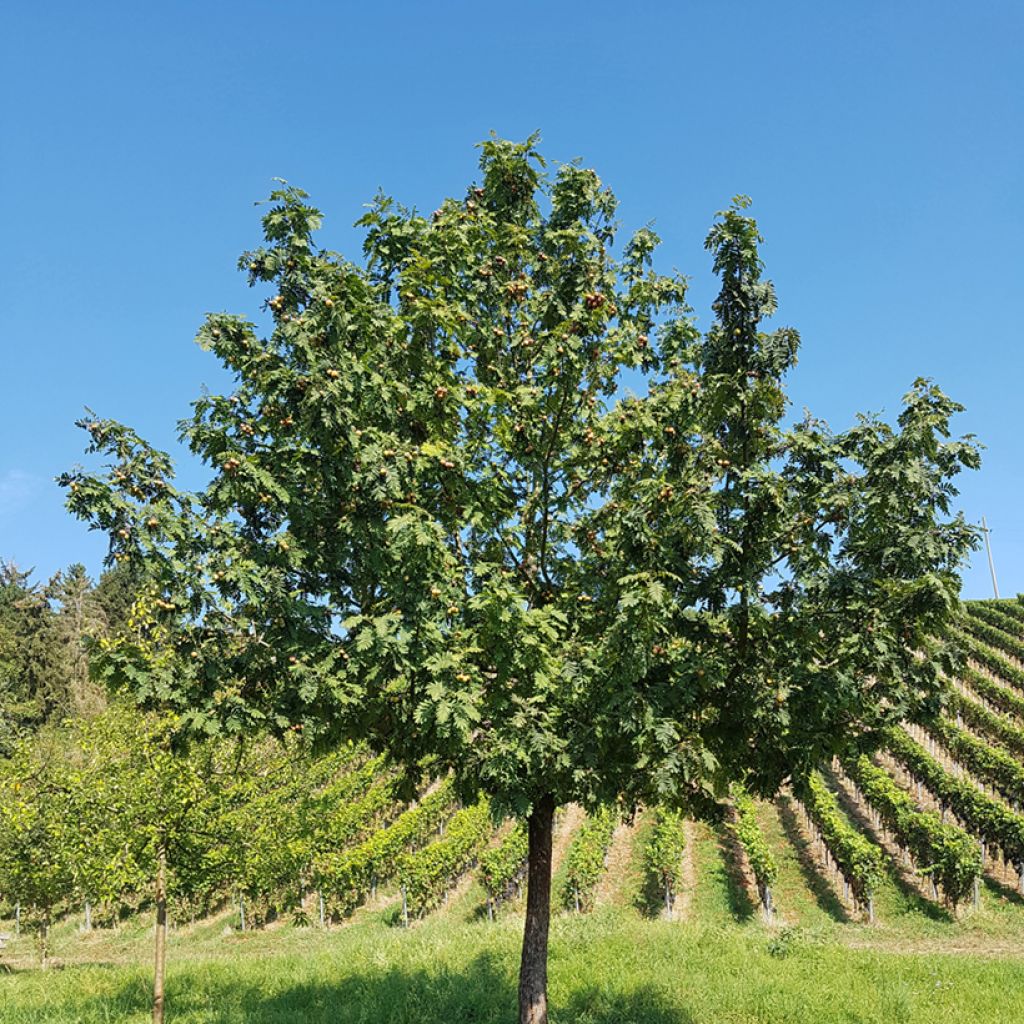

Sorbus domestica - Cormus
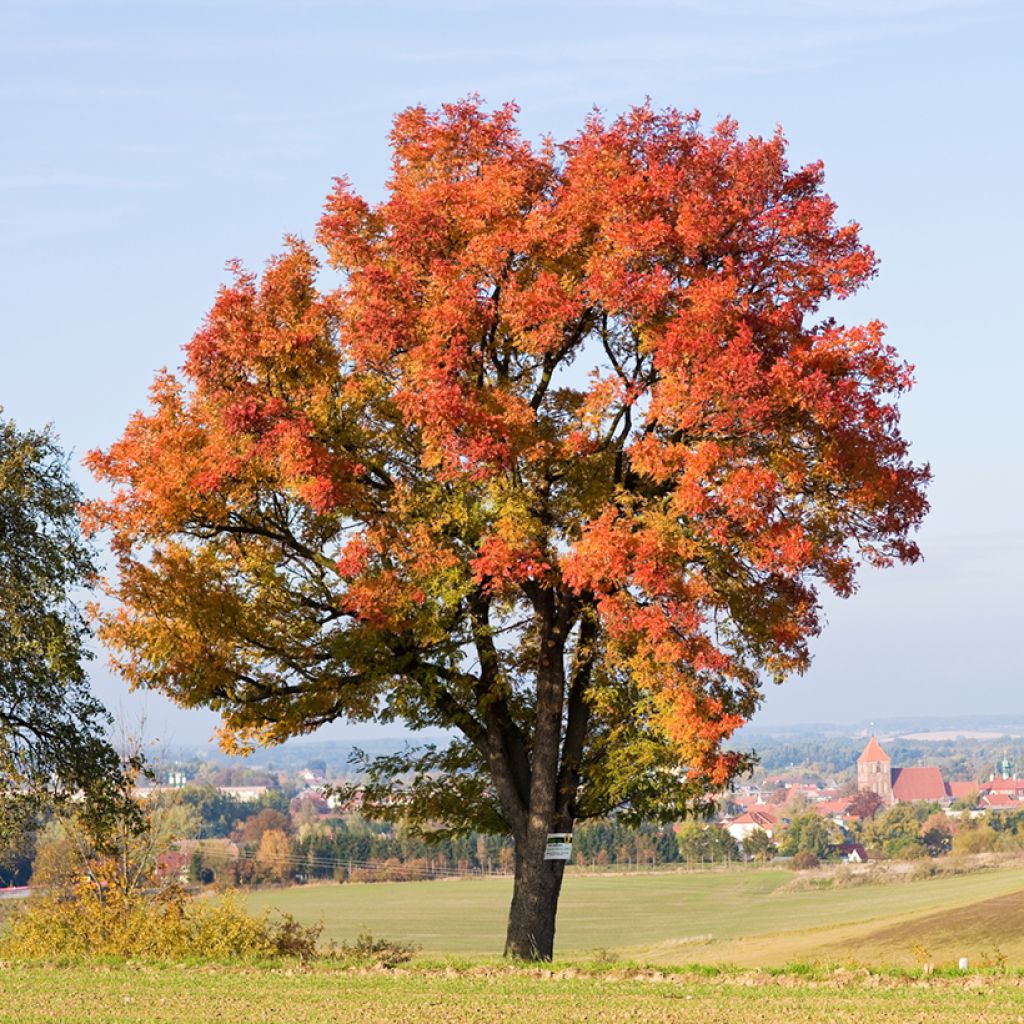

Sorbus domestica - Cormus
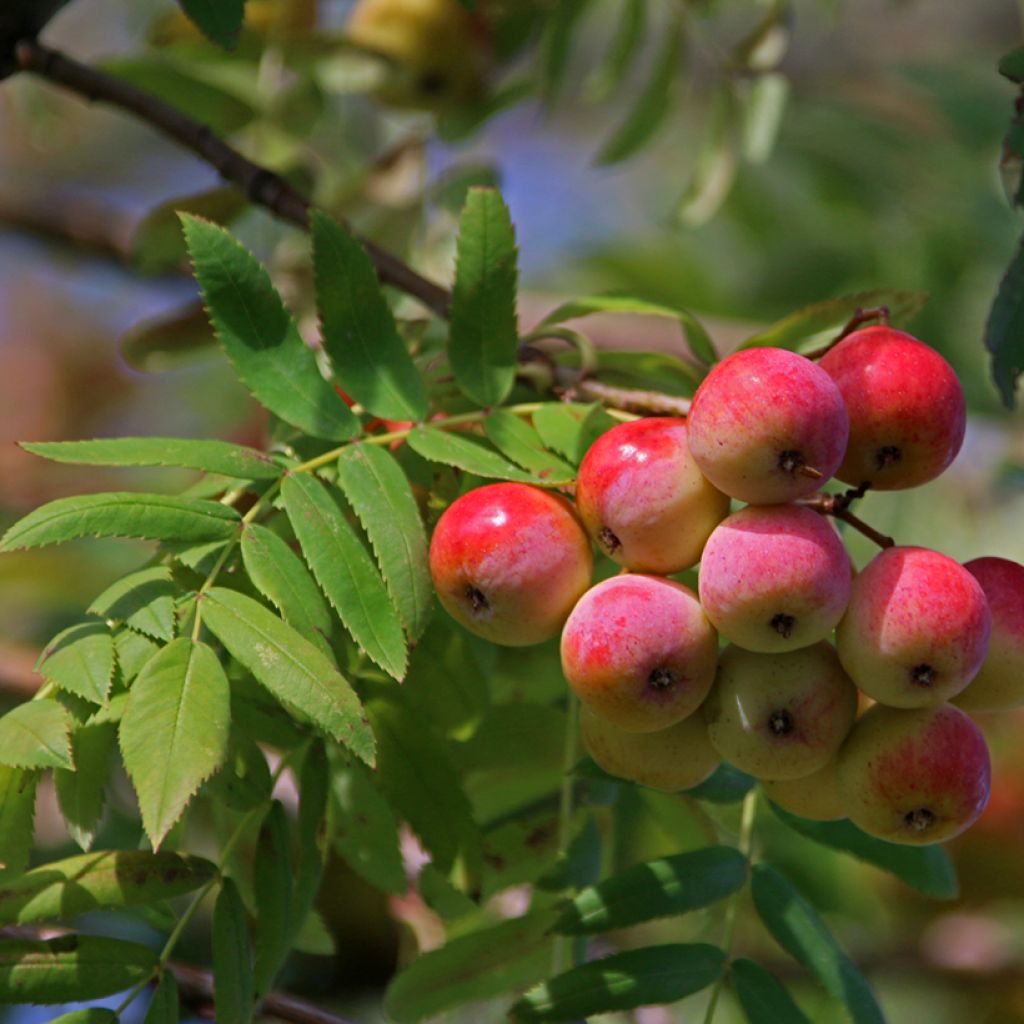

Sorbus domestica - Cormus
Sorbus domestica - Cormus
Sorbus domestica
Service Tree, True Service Tree
Why not try an alternative variety in stock?
View all →This plant carries a 24 months recovery warranty
More information
We guarantee the quality of our plants for a full growing cycle, and will replace at our expense any plant that fails to recover under normal climatic and planting conditions.
From €5.90 for pickup delivery and €6.90 for home delivery
Express home delivery from €8.90.
Does this plant fit my garden?
Set up your Plantfit profile →
Description
The Service Tree or Domestic Sorbus, known by its Latin name Sorbus domestica, is a relatively unknown fruit tree, not to be confused with the rowan tree. Easy to grow, it spontaneously grows in our forests. It forms an elegant, long-lived tree, with graceful pinnate foliage, white and fragrant spring flowering, followed in summer by fruits called medlars, resembling small wild pears with a sweet and mild taste that are consumed once fallen and over-ripe. Undemanding and versatile, this tree thrives when planted alone, in an orchard, or as a large hedge.
The Sorbus domestica belongs to the Rosaceae family like all service trees. Its botanical synonyms include: Cormus domestica, Pyrus domestica, Sorbus domestica var. pyrifera, Sorbus domestica var. pomifera, Pyrus sorbus. Originally native to the entire Mediterranean basin, it spread throughout Europe during the time of the Roman Empire. While it does not exceed 10 to 12 m in height in the south, in wetter regions and rich soils, it can reach the height of the tallest trees in forests. It adapts well to various soils and climates, making it valuable in times of climate change. It is an increasingly rare tree listed as endangered species in Switzerland and Austria. Some remarkable specimens in France and Europe reach 250 to 400 years. Its wood is very dense, ranking among the hardest indigenous woods in France and is used in tool making or as lumber in cabinetmaking.
This tree grows slowly and reaches a height of 10 to 15/20 m depending on growing conditions with a spread of 6 to 8 m, or more. It has an upright and broad habit, with orange-brown, scaly and fissured bark. Its foliage is deciduous, consisting of pinnate leaves with up to 21 rounded and partly toothed leaflets. Flowering occurs in May-June, in the form of clusters of small white, melliferous and fragrant flowers. The fruits, called medlars, sorbs, little pears, or pippins, appear in summer. They resemble small wild pears of 2 to 3 cm, clustered together. Initially green, then turning yellow with purple spots, they are edible only when over-ripe, after falling in September-October, when they become soft and sweet.
The service tree is a very hardy tree, able to withstand temperatures as low as -30°C, and undemanding. It prefers sunlight and tolerates partial shade. It easily adapts to various conditions and can be planted alone, in a large hedge, in a forest, or in an orchard. It tolerates all types of soils, including limestone, but rich and moist soil promotes greater growth.
Report an error about the product description
Sorbus domestica - Cormus in pictures






Plant habit
Flowering
Foliage
Botanical data
Sorbus
domestica
Rosaceae
Service Tree, True Service Tree
Cormus domestica, Pyrus domestica, Sorbus domestica var. pyrifera, Sorbus domestica var. pomifera, Pyrus sorbus
Mediterranean
Other Sorbus - Mountain Ash
Planting and care
The Sorbus domestica, also known as Service tree, is preferably planted in autumn. It thrives in the sun and tolerates partial shade. It can adapt to all types of soil, growing more vigorously in rich and moist soil. It appreciates humus, freshness, and well-drained land. Remove dead wood or diseased branches regularly.
Canker and fire blight, both originating from fungi, are diseases that can occasionally affect this tree.
Planting period
Intended location
Care
This item has not been reviewed yet - be the first to leave a review about it.
Hedge shrubs
Haven't found what you were looking for?
Hardiness is the lowest winter temperature a plant can endure without suffering serious damage or even dying. However, hardiness is affected by location (a sheltered area, such as a patio), protection (winter cover) and soil type (hardiness is improved by well-drained soil).

Photo Sharing Terms & Conditions
In order to encourage gardeners to interact and share their experiences, Promesse de fleurs offers various media enabling content to be uploaded onto its Site - in particular via the ‘Photo sharing’ module.
The User agrees to refrain from:
- Posting any content that is illegal, prejudicial, insulting, racist, inciteful to hatred, revisionist, contrary to public decency, that infringes on privacy or on the privacy rights of third parties, in particular the publicity rights of persons and goods, intellectual property rights, or the right to privacy.
- Submitting content on behalf of a third party;
- Impersonate the identity of a third party and/or publish any personal information about a third party;
In general, the User undertakes to refrain from any unethical behaviour.
All Content (in particular text, comments, files, images, photos, videos, creative works, etc.), which may be subject to property or intellectual property rights, image or other private rights, shall remain the property of the User, subject to the limited rights granted by the terms of the licence granted by Promesse de fleurs as stated below. Users are at liberty to publish or not to publish such Content on the Site, notably via the ‘Photo Sharing’ facility, and accept that this Content shall be made public and freely accessible, notably on the Internet.
Users further acknowledge, undertake to have ,and guarantee that they hold all necessary rights and permissions to publish such material on the Site, in particular with regard to the legislation in force pertaining to any privacy, property, intellectual property, image, or contractual rights, or rights of any other nature. By publishing such Content on the Site, Users acknowledge accepting full liability as publishers of the Content within the meaning of the law, and grant Promesse de fleurs, free of charge, an inclusive, worldwide licence for the said Content for the entire duration of its publication, including all reproduction, representation, up/downloading, displaying, performing, transmission, and storage rights.
Users also grant permission for their name to be linked to the Content and accept that this link may not always be made available.
By engaging in posting material, Users consent to their Content becoming automatically accessible on the Internet, in particular on other sites and/or blogs and/or web pages of the Promesse de fleurs site, including in particular social pages and the Promesse de fleurs catalogue.
Users may secure the removal of entrusted content free of charge by issuing a simple request via our contact form.
The flowering period indicated on our website applies to countries and regions located in USDA zone 8 (France, the United Kingdom, Ireland, the Netherlands, etc.)
It will vary according to where you live:
- In zones 9 to 10 (Italy, Spain, Greece, etc.), flowering will occur about 2 to 4 weeks earlier.
- In zones 6 to 7 (Germany, Poland, Slovenia, and lower mountainous regions), flowering will be delayed by 2 to 3 weeks.
- In zone 5 (Central Europe, Scandinavia), blooming will be delayed by 3 to 5 weeks.
In temperate climates, pruning of spring-flowering shrubs (forsythia, spireas, etc.) should be done just after flowering.
Pruning of summer-flowering shrubs (Indian Lilac, Perovskia, etc.) can be done in winter or spring.
In cold regions as well as with frost-sensitive plants, avoid pruning too early when severe frosts may still occur.
The planting period indicated on our website applies to countries and regions located in USDA zone 8 (France, United Kingdom, Ireland, Netherlands).
It will vary according to where you live:
- In Mediterranean zones (Marseille, Madrid, Milan, etc.), autumn and winter are the best planting periods.
- In continental zones (Strasbourg, Munich, Vienna, etc.), delay planting by 2 to 3 weeks in spring and bring it forward by 2 to 4 weeks in autumn.
- In mountainous regions (the Alps, Pyrenees, Carpathians, etc.), it is best to plant in late spring (May-June) or late summer (August-September).
The harvesting period indicated on our website applies to countries and regions in USDA zone 8 (France, England, Ireland, the Netherlands).
In colder areas (Scandinavia, Poland, Austria...) fruit and vegetable harvests are likely to be delayed by 3-4 weeks.
In warmer areas (Italy, Spain, Greece, etc.), harvesting will probably take place earlier, depending on weather conditions.
The sowing periods indicated on our website apply to countries and regions within USDA Zone 8 (France, UK, Ireland, Netherlands).
In colder areas (Scandinavia, Poland, Austria...), delay any outdoor sowing by 3-4 weeks, or sow under glass.
In warmer climes (Italy, Spain, Greece, etc.), bring outdoor sowing forward by a few weeks.

































